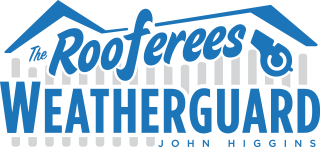Knock on wood, it’s been a quiet storm season so far…..but we live in the Midwest, so there is a good chance we will experience damaging storms before the season is over. And we can’t say it enough – beware of storm chasers if your property is damaged!
Storms with heavy rain, strong winds and hail can cause significant damage to your home, specifically the siding, gutters, decking, and roof of your home or business.
After a strong storm, take a good look at your property. Here are some key things to keep an eye out for if you are concerned about hail damage:
- Asphalt granules in the gutters or coming out of downspouts are a good indication that the shingles may be damaged from hail.
- Check downspouts and gutters for dents and ding marks.
- Look for blown, damaged or missing shingles. We do not recommend homeowners climb on the roof, especially a wet roof, so do your best to assess this from the ground or second story windows.
- Check vehicles that were outside in the storm. Hail dents on a vehicle are a good indication that the roof has also been damaged.
- Look for torn screens or siding that has dents or paint chipped off.
If you think your property has storm damage, call the professionals for an assessment. BUT – avoid doing business with storm chasers. Storm chasers will arrive from out-of-town to an area that has been recently hit with a significant wind or hail storm. They perform the bare minimum – replacing a damaged roof quickly with a cheap roof and ignoring other potential problems. This is a problem for homeowners because these roofs typically don’t last long, and the storm chaser is no longer available in the area to make any repairs.
Here are some things to keep in mind as you choose a contractor to assess the damage to your home:
- Do your research. Ask for license and insurance, and make sure the company is an established, LOCAL company with an office in town.
- Be leery of a door-to-door salesman. They canvas a neighborhood that was recently hit by a storm, preying on senior citizens or older homes. The scammer will offer a free inspection and once on your roof may fabricate damage or produce a picture of damage that isn’t on your roof.
- Don’t sign any paperwork with a roofing company before your insurance adjustor has inspected the roof first and determined there is damage.
- Don’t be pressured by a high-pressure salesman. If it sounds too good to be true, it probably is. Some roofing scammers will bid the job much lower than everyone else, only to add more costs after the job has started. Material costs should never rise after the job has started.
- Always ask for an estimate that includes the total cost of labor and materials. If a contractor doesn’t want to give you an estimate before the insurance adjustor assesses the damage, they are likely trying to scam you.

